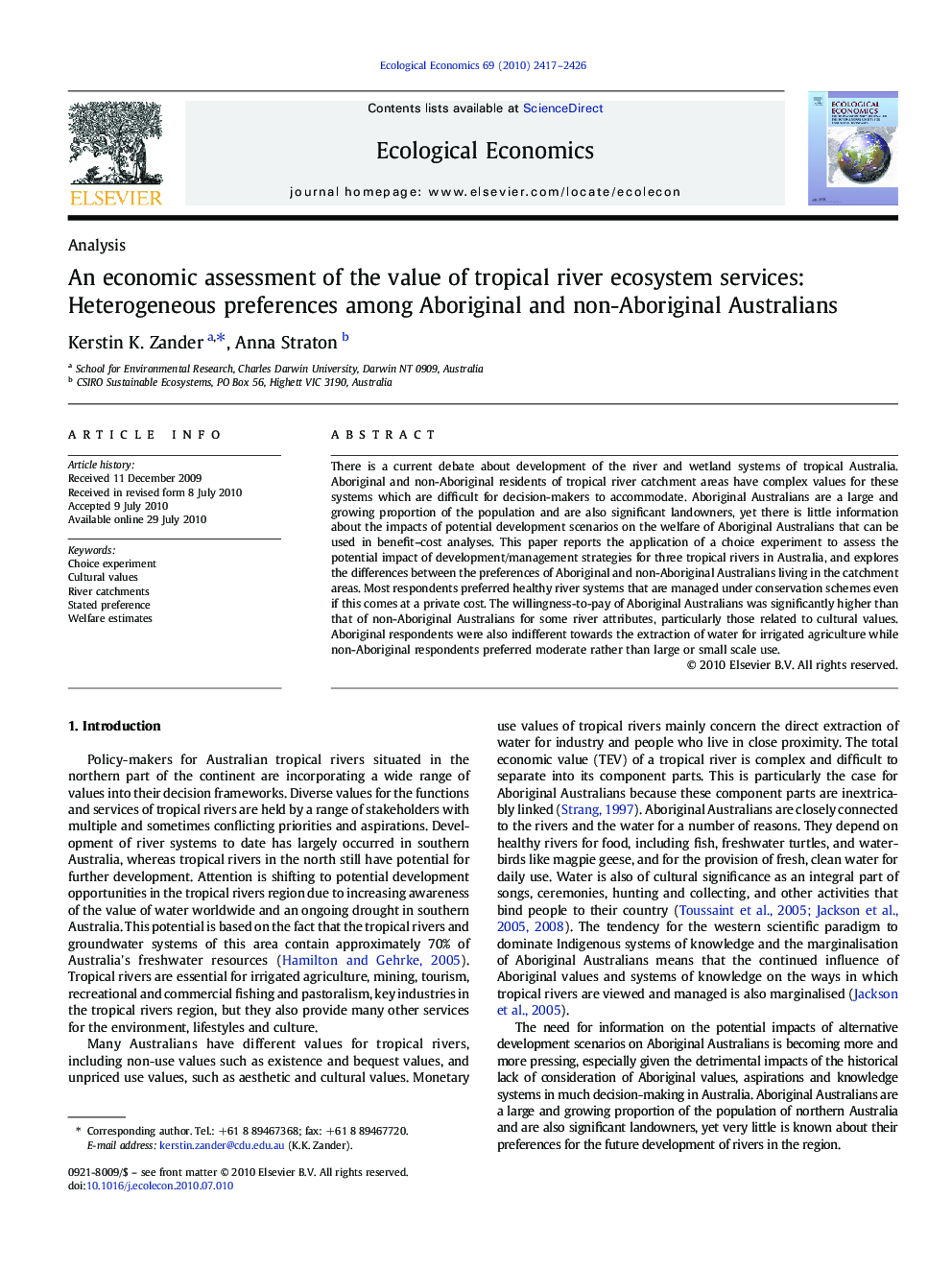| Article ID | Journal | Published Year | Pages | File Type |
|---|---|---|---|---|
| 5050812 | Ecological Economics | 2010 | 10 Pages |
There is a current debate about development of the river and wetland systems of tropical Australia. Aboriginal and non-Aboriginal residents of tropical river catchment areas have complex values for these systems which are difficult for decision-makers to accommodate. Aboriginal Australians are a large and growing proportion of the population and are also significant landowners, yet there is little information about the impacts of potential development scenarios on the welfare of Aboriginal Australians that can be used in benefit-cost analyses. This paper reports the application of a choice experiment to assess the potential impact of development/management strategies for three tropical rivers in Australia, and explores the differences between the preferences of Aboriginal and non-Aboriginal Australians living in the catchment areas. Most respondents preferred healthy river systems that are managed under conservation schemes even if this comes at a private cost. The willingness-to-pay of Aboriginal Australians was significantly higher than that of non-Aboriginal Australians for some river attributes, particularly those related to cultural values. Aboriginal respondents were also indifferent towards the extraction of water for irrigated agriculture while non-Aboriginal respondents preferred moderate rather than large or small scale use.
